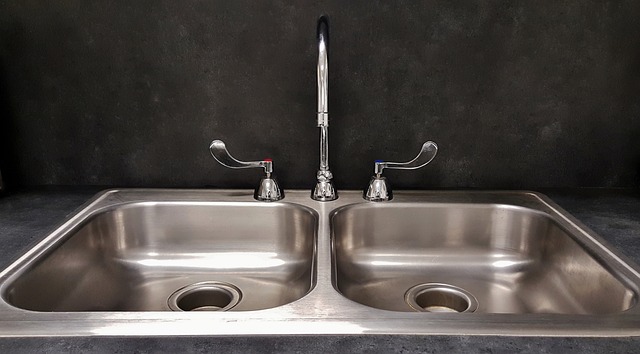TL;DR: Homeowners should watch for signs of a clogged drain—slow drainage, gurgling sounds, bad odors, or water pressure changes—to prevent severe plumbing issues. Regular maintenance, like catching hair and debris, using hot water and vinegar, and checking drains periodically, is crucial. Initial unclogging techniques with plungers or chemical cleaners can address minor clogs. However, if methods fail or severe clogs occur, consult professional plumbers equipped with specialized tools for effective drain unclogging.
Are you a homeowner tired of dealing with stubborn drain clogs? This comprehensive guide is your go-to resource for maintaining healthy drains. Learn to recognize subtle signs of a clogged drain early on, and equip yourself with preventative measures to keep them clear. Discover effective unclogging techniques and when it’s time to call the pros. By understanding these key insights, you’ll navigate your home’s drainage system with confidence.
- Recognizing Signs of a Clogged Drain
- Preventative Measures to Avoid Clogs
- Unclogging Techniques and When to Call a Professional
Recognizing Signs of a Clogged Drain

Recognizing a clogged drain is crucial for homeowners looking to maintain their plumbing systems. Some telltale signs include a slow draining sink or tub, where water levels rise only gradually or not at all after you start the faucet. You might also notice gurgling sounds coming from drains or toilets—an indicator that water is struggling to flow through the pipes. Another common symptom is an unpleasant odor emanating from your drains; this can signal a buildup of organic matter and potential bacterial growth. If you observe any of these signs, it’s time to investigate further as they could point to a clogged drain.
Homeowners should also be vigilant for sudden changes in water pressure or the appearance of standing water around drains. These issues can indicate a complete blockage that requires immediate attention. Regular maintenance, like running hot water through drains and using natural cleaning agents, can help prevent clogs from forming. But when signs of a clogged drain emerge, acting promptly is essential to avoid more severe plumbing problems.
Preventative Measures to Avoid Clogs

Regular maintenance is key to avoiding drain clogs, so it’s essential to stay proactive. Start by being mindful of what goes down your drains; avoid disposing of grease, coffee grounds, and large food particles. These substances can solidify in pipes, leading to blockages. Additionally, consider using drain covers or catchers to trap hair and other debris, especially in showers and sinks.
On a more periodic basis, flush your drains with hot water and white vinegar or baking soda solutions to help clear out any built-up residue. This simple step can go a long way in preventing clogs before they start. Also, check for signs of a clogged drain like slow drainage, gurgling noises, or bad odors, as these are early indicators that your drains need some tender loving care.
Unclogging Techniques and When to Call a Professional

If you’ve encountered a blocked drain, there are several unclogging techniques you can try before calling a professional. Start with using a plunger to create suction and break up any built-up gunk. Pouring hot water down the drain after plunging can help dissolve grease and grime. You can also employ a chemical drain cleaner, but proceed with caution and follow safety instructions. If these methods don’t resolve the issue, look for signs of a clogged drain like slow drainage or gurgling noises.
When it comes to severe cases or recurring clogs, it’s time to call in a professional plumber. They have specialized tools like snakes or hydro-jetting equipment to break through stubborn blockages. Regular maintenance and promptly addressing minor clogs can prevent more serious drain issues down the line. Remember, if you’re unsure or uncomfortable tackling a blocked drain, seeking expert help is always a wise choice.
Maintaining healthy drains is essential for any homeowner. By recognizing signs of a clogged drain early, taking preventative measures, and understanding unclogging techniques, you can keep your home’s plumbing system running smoothly. Remember, while some clogs may be fixed easily at home, there are times when it’s best to call a professional. Regular care and quick action will help ensure your drains remain clear and free-flowing for years to come.
